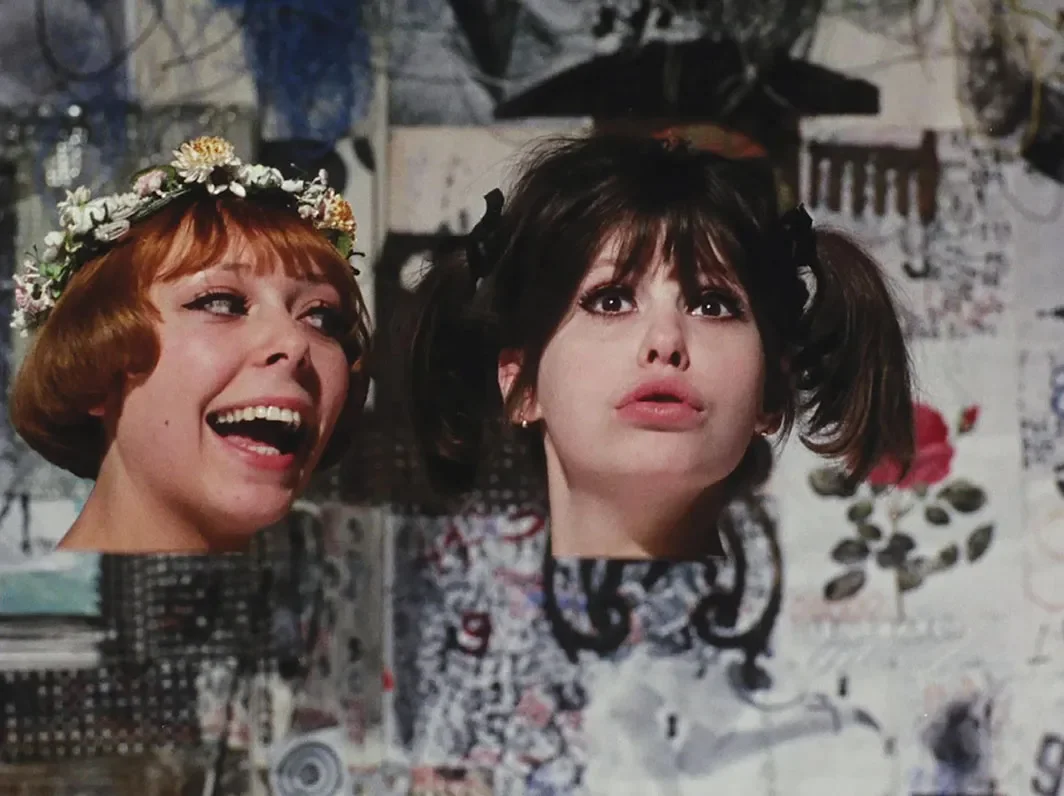Feminism, Food Fights and Ferality in Charli XCX’s ‘brat’ (2024) and Věra Chytilová’s ‘Daisies’ (1966)
Written by Darcy Hamand; edited by Charlotte Lewis
In 1966, Czech director Věra Chytilová released Daisies, a radical film about two young women who, upon declaring the world corrupt, decide they may as well be corrupt too. By 1968, it was censored by the Czechoslovak government — ironically proving Chytilová’s point: the world had indeed gone bad, and patriarchy was at the heart of it.
The film was condemned for its hedonistic, chaotic heroines whose main pursuits include teasing older men and indulging in whatever fanciful snacks they can get their hands on. The infamous finale — where the girls gleefully destroy a lavish banquet, was especially scandalous under Soviet rule, banned for its depiction of food waste in a society defined by rationing and discipline.
But beneath the anarchy is something deliberate. Through extravagant consumption, playful subversion, and total disruption of the social order, Daisies critiques gendered expectations and authoritarian control in a way that is rebellious, stylish, and absurdly joyful.
That same spirit lives on in Charli XCX’s brat era: indulgent, hyper-feminine, and unapologetically messy. Both celebrate chaos as resistance, femininity as performance, and excess as power.
Flash forward to 2025, the winter that followed ‘brat summer’, where women are encouraged to be messy and unapologetic. A video goes viral of the beautiful model, Gabriette (Charli XCX’s muse and friend), playing with her spaghetti at an award show after-party. She is twirling, slurping, and making a total mess. It feels straight out of Daisies, where food fights and excess aren’t just themes; they’re an art form. Naturally, the internet was appalled at her immaturity as we hear Gabriette’s fiancé scold her in the background. Of course, this was hardly meant as a political uprising, just a drunk model feeding pasta to her friend. Yet under the larger scope of brat’s rebellious undertones and the recent attacks against women’s rights, this does read like a scene from Daisies.
When women misbehave in a corrupt world, their defiance becomes more than just rebellion; it transforms into a statement, a form of resistance against the systems that seek to control them. Whether through playful anarchy, excess, or deliberate disruption, their actions challenge the idea that they must conform to a broken status quo. In a world that often punishes them for stepping out of line, their misbehaviour is not just chaos; it is liberation. Pass the spaghetti.





